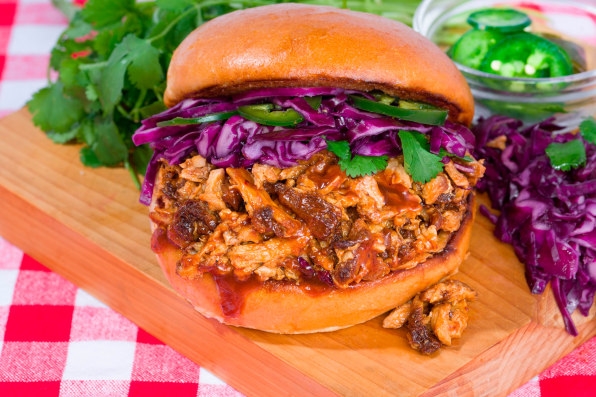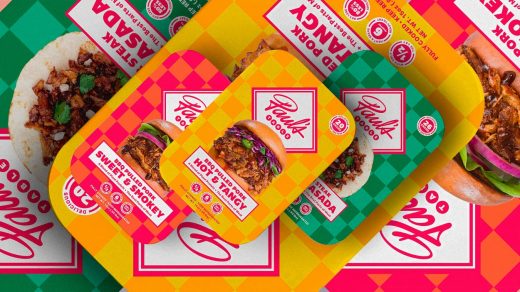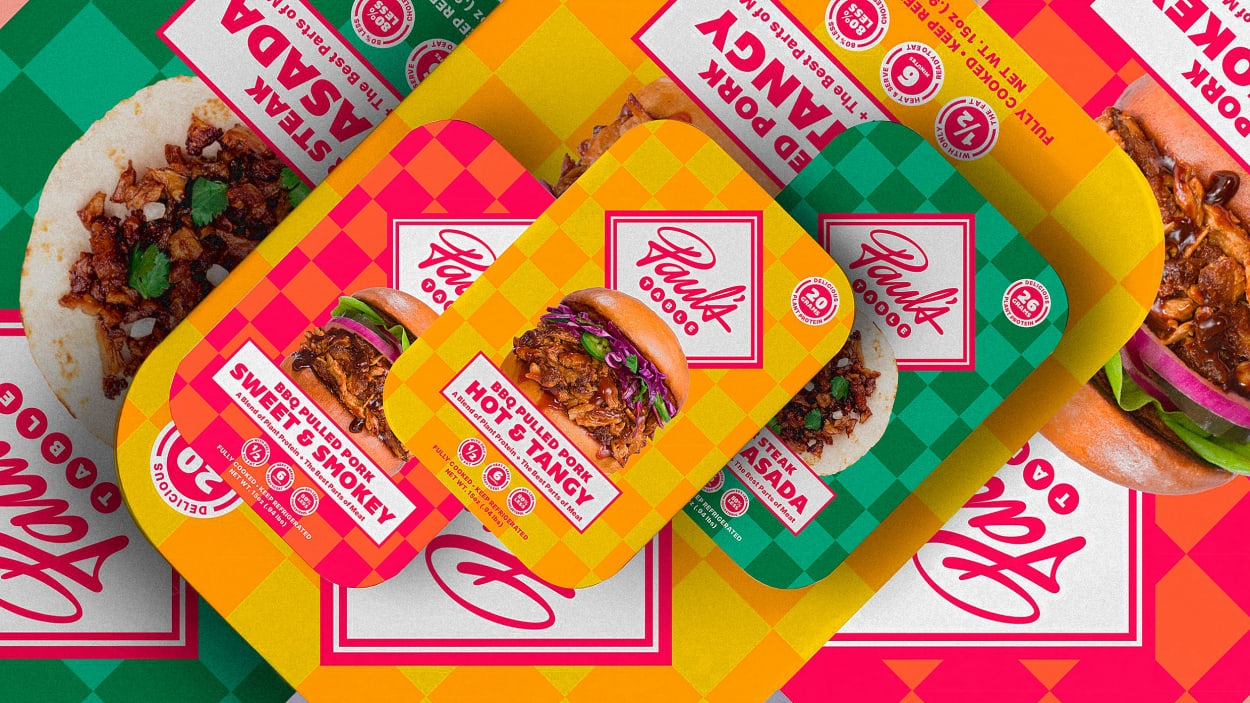Why this startup is adding real meat to its plant-based product
As the first R&D engineer at Beyond Meat, Saba Fazeli spent five years working on plant-based burgers and other vegan food. But when he launched Momentum Foods last year, he and cofounder Brice Klein took a different approach: Their products are mostly plant-based but do include a small amount of meat.
Both Fazeli and Klein saw shortcomings in the world of plant-based alternatives. “The products were too expensive and didn’t taste good enough,” says Klein. “It was a hard value proposition. Asking consumers to spend more money for a worse-tasting product that may or may not be healthier, but would give them a greener conscience, is a bit hard, especially in a recession. So we saw that we can change that by adopting this blended solution.”

The company’s first products, like a pulled pork and carne asada, will be sold under their consumer-facing brand, Paul’s Table. They use roughly 90% plant ingredients, including soy and brown rice, giving them most of the environmental benefit of fully vegan options. But they also include key parts of meat like collagen and fat—the “bits of meat that are not actually the muscle, but rather what drive the sensory quality of the experience,” says Fazeli. “I think everyone is familiar with the notion that fat is really what drives flavor in a big way. And for us, the inclusion of the animal fat is really what takes this stuff and makes it so much more like the meat experience that we would expect—the way it coats your mouth and the flavor that results.”
While it’s challenging and expensive to make fully plant-based meat taste like the real thing, the ingredients that the startup has chosen are affordable enough that even as it first launches, it’s at price parity with animal meat.
“To us, the most exciting part of this concept is a very clear path toward actually undercutting the price of meat,” Fazeli says. “If we can create an option that is better for people and the planet, and it’s cheaper, we really think this is going to persist as a space over time.” The company plans to focus first on mainstream grocery stores, targeting consumers who are price conscious but looking for better products.

The concept of mixing meat with vegetable protein isn’t new. But while your school cafeteria might have mixed a small amount of plant ingredients with a larger amount of meat to save money, Momentum Foods flips the ratio and is focused first on flavor. A handful of other companies also offer blended or “hybrid” products, including the startups Better Meat Co. and Mycorena, and large meat companies like Purdue and Hormel.
“In coming years, I expect to see even more of a focus on blended products,” says Audrey Gyr, a startup innovation specialist at the nonprofit Good Food Institute. “It’s likely that blended products can get to taste and price parity more quickly than 100% alt-protein options. These products could serve as a stepping stone into alt proteins for many consumers. However, manufacturers of blended products will need to really understand what their target consumer is looking for and may face added complexities around marketing and brand positioning.”
Momentum Foods, which recently completed a stint at the tech accelerator Y Combinator, plans to launch first in a few smaller channels, so it can engage as much as possible with consumers. “The difficulty of explaining the nuance concisely is definitely at the forefront for us,” says Fazeli. “It’s very easy to explain something is 100% meat or 0% meat,” he says, but the new category is more of a challenge to quickly communicate.
The first products will be in select regional chains and available direct-to-consumers later this year, and as the startup studies how consumers respond, it will scale up. The manufacturing process is straightforward, unlike newer approaches like precision fermentation, so it’s possible to quickly grow, Fazeli says.
Fazeli wants to see plant-based meat continue to grow and wants Momentum’s new products to take market share away from animal meat. “The thought is that meat should be a special occasion, a once-in-a-while thing,” he says. “And for the majority of folks, protein consumption should either be blended or plant-based solutions if we want to get to a sustainable future as the population grows.”
The growth of plant-based alternatives over the last several years made the new category possible, he says. “I think the groundswell surrounding plant-based really has paved the path for this to happen . . . if plant-based had not proliferated in the market and gotten into the minds of consumers over the last five to seven years, a solution like this would be a little bit too farfetched. But now that folks are familiar with both the plant-based solutions and, of course, meat itself, putting them together seems like a logical next step to us.”
(7)



